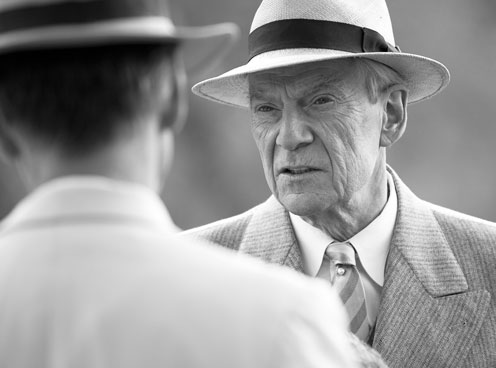The Last Sentence

Full Description
Sweden’s western neighbors Norway and Denmark were invaded by the Nazis in 1940, while its eastern neighbor Finland was invaded by the Soviet Union. Fearing for the survival of Sweden as an independent nation, the country’s elites chose a policy of silence and compliance during World War II. Few Swedes dared to speak up against the evil around them. Among those who did, nobody was as loud and as uncompromising as Swedish anti-Nazi journalist Torgny Segerstedt. In the eyes of many of his countrymen, his pen was far more dangerous to Sweden than the Nazi sword. Amidst the political turmoil of the times, Segerstedt’s own personal life became chaotic and dramatic. In mesmerizing dream landscapes, he reconnects with the dead women in his life, including his Jewish mistress. The film’s narrative is as spellbinding as its message is clear: Man has a moral duty to speak out against evil, an obligation that transcends time and geography. Beautifully filmed in black-and-white, The Last Sentence by renowned Swedish director Jan Troell, (whose epic films The Emigrants and The New Land made him an international figure in the 1970s) is guaranteed to stay with audience members long after they have left the movie theater.
Director(s)
Country(ies)
Language(s)
Release Year
Festival Year(s)
Running Time
124
Writer(s)
Cinematographer(s)
Editor(s)
Cast

